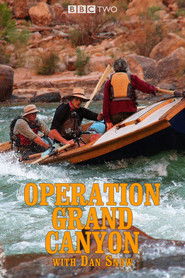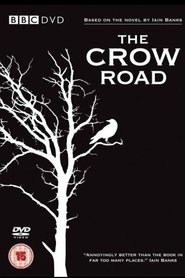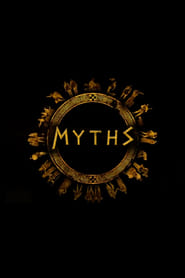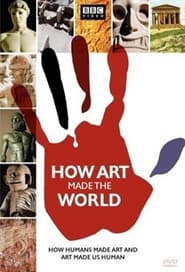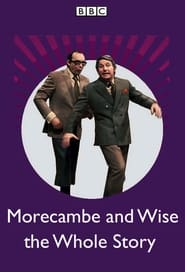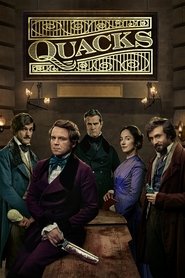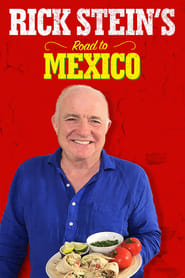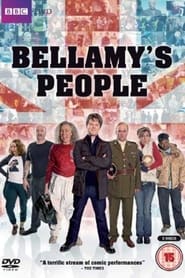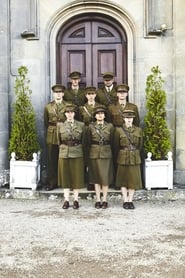Bbc Two TV Series - Page 36
-
Operation Grand Canyon With Dan Snow
2014
Dan Snow is taking on a massive challenge, recreating the first ever exploration of the mighty Colorado River. -
Raymond Blanc: How to Cook Well
2013
Raymond Blanc believes becoming a good cook is all about mastering the basic techniques. Raymond taught himself to be a Michelin star chef. But first, he had to understand what happens to food when you cook it different ways. Once you know what is happening when you roast, fry, poach etc then you can cook anything. After forty years of trial and error, Raymond wants to share what he has learnt. Each week he takes a different technique and shows five delicious dishes using that technique. The recipes range from simple to ambitious and Raymond delivers it all in his easy, warm, inimitable way. -
Rockschool
1983
Rockschool
1983
The series explored the history of rock music and gave instruction in popular performance techniques. -
The Hairy Bikers: Pubs That Built Britain
2016
The Hairy Bikers take their charm and humour on the road as they encounter brilliant, eccentric and fascinating people across Britain whose lives surround the nation’s pubs. Their epic journey will take them into the secret world of the pubs that made Britain. From the first Roman taverns, to Anglo Saxon alehouses which sprung up in peoples’ homes, and the travelers Inns providing respite for a more mobile population, they’ll reveal the fascinating story of how Britain’s pubs evolved - but also tells a bigger story of Britain itself. -
The Romantics and Us with Simon Schama
2020
star 10From popular revolt to the obsession with the self, even to modern nationalism, Simon Schama explores the enduring and powerful legacy the Romantics have left on our modern world. -
The Crow Road
1996
star 6.9History student Prentice returns home to attend his grandmother’s funeral. As the McHoan family gathers together to mark the solemn occasion, old disagreements continue to fester and old acquaintances are renewed. Following the unexpected death of another close relative, Prentice begins to question the past: why did his Uncle Rory suddenly disappear and where did he go? Reading his Uncle Rory’s unpublished novel may provide the answers he is seeking but it also unearths some dark family secrets he didn’t bargain for. -
Home Time
2009
star 6Gaynor Jacks, aged 29, returns to her mum and dad's house in Coventry after running off to find her place in the big wide world when she was 17-years-old. -
Neanderthals - Meet Your Ancestors
2018
star 7According to recent science the Neanderthals are not the knuckle-dragging apemen of popular imagination. In fact they are our distant ancestors. About 2% of the DNA of most people is of Neanderthal origin—and it continues to affect us today. Ella Al-Shamahi enlists the skills of Andy Serkis, the master of performance capture, and a group of experts to investigate Neanderthals. -
Coastal Defenders
2023
Coastal Defenders
2023
Meet the team of dive engineers on England's south coast as they battle time and tide to keep Britain’s coastlines and waterways moving. -
Myths
2009
star 6"What is Myths?" we hear you cry! Well, in a nutshell, Myths is a series of six short episodes based on the Ancient Greek Myths. Each episode focuses on a different myth and has been interpreted into a modern-day tale, telling the story of a group of teenagers living in the fictional English village of Delphi. There's love, loss, evil, adventure, mystery, death… and some serious fitties. -
Cat Watch 2014: The New Horizon Experiment
2014
star 7Liz Bonnin joins forces with some of the world's top cat experts to conduct a groundbreaking scientific study. With GPS trackers and cat cameras, they follow 100 cats in three different environments. -
How Art Made The World
2005
star 8.7Nigel Spivey reveals how the images which surround us today come from the ancient world. It's an epic journey spanning five continents and a hundred thousand years of history. -
Morecambe and Wise the Whole Story
2013
The story of Eric and Ernie, from struggling variety turns to the kings of TV comedy. -
Quacks
2017
star 7.2A raucous comedy set in Victorian London about four medical pioneers fighting to make a mark on the world. -
Rick Stein's Road to Mexico
2017
star 7.5Inspired by a road trip that he made in the 1970's, the UK chef documents the food and culture from San Francisco in California down to Oaxaca in Mexico. -
Bellamy's People
2010
Bellamy's People
2010
Radio phone-in host Gary Bellamy is given his own TV series in which he travels the length and breadth of the land to meet the British people. -
Stuck
2022
star 6.7It is based on a relationship between Dan and Carla with an age gap who are at a cross-roads. Dan has been made redundant, When Carla's ex-girlfriend Maya re-appears, things start to get even more tricky. -
Wild Caribbean
2007
star 2Nature programme exploring the rich variety of wildlife hidden in the diverse landscapes of the Caribbean islands. -
Secret Agent Selection: WW2
2018
star 6.4The training programme of one of World War Two's most covert organisations, the Special Operations Executive or SEO, is resurrected. -
Hits That Missed at the BBC
2024
A selection of classic songs that never made the UK Top 40 the first time they were released, including Summer of '69 by Bryan Adams, David Bowie's Changes, Dolly Parton's 9 to 5, and Johnny Cash's Ring of Fire
